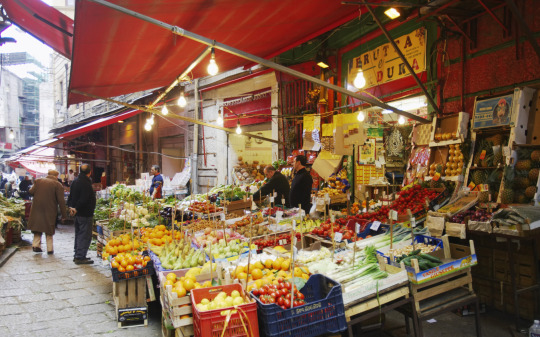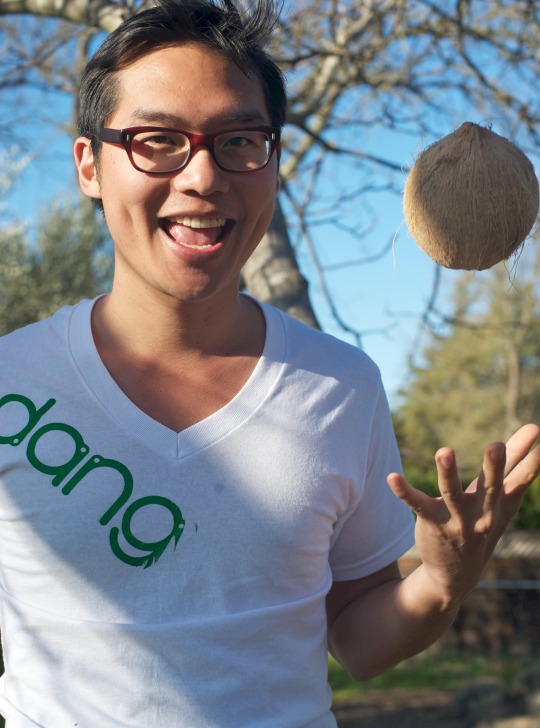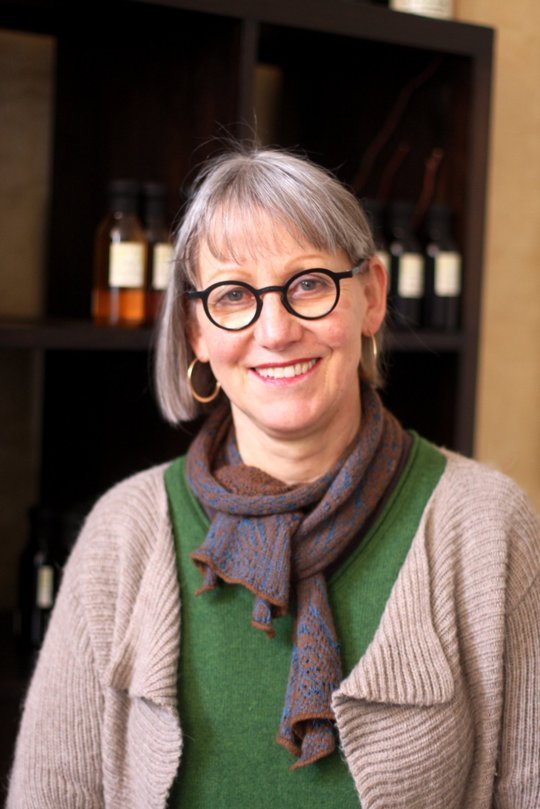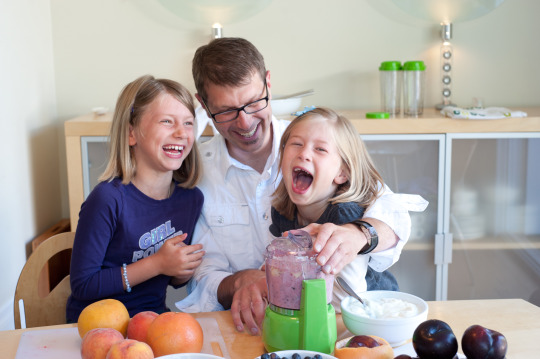
Before the Industrial Revolution, when the greater part of
the world’s population was engaged in agriculture, cottage industry was a
common hedge against hunger. Farmers and their families used the lean months of
winter, after their crops had been harvested and sold, to earn money by selling
preserved goods and handicrafts, or doing piecework for others.
In these post-industrial times, our taste and appreciation
for authentic artisanal foods has created an ever growing demand for them. But
for many years, home cooks and bakers in the U.S. have been thwarted by
draconian food safety legislation designed to keep food produced in home
kitchens off the commercial market. Cottage food producers, many of them
stay-at-home moms simply trying to make ends meet, find themselves barred from
selling their cookies or pickles or jams unless they lay out the big bucks
needed to rent a
commercial kitchen.
All that changed in September 2012—in California, at
least—with the passage of AB
1616, the California Homemade Food Act. Much to the relief and delight of
clever home cooks and bakers, AB 1616 legalized cottage food. Upon signing the
bill, Governor Jerry Brown praised the legislation as a way to “make it easier
for people to do business in California.”
In Los Angeles County alone, there are almost 270 cottage
food businesses, according to an
article by Nick Sibila in Forbes. Statewide, over 1,200 homemade food
businesses had been approved as of 2014.
We have already written about the
small business opportunity for cottage food producers. In this article, the
second in our series, we want to give our readers a sense of how much easier
things are now than they were before the laws changed. A
third article shows you how to find the facts you need about your
local cottage food laws, and how to start your food business without breaking
any rules.
“Having a good
product makes everything else easier.”
Vincent Kitirattragarn, the charismatic young founder and
CEO of specialty coconut snack producer Dang
Foods, says that anti-cottage food regulations would have made it
impossible to launch his business in 2011 if he hadn’t been a vendor at the now
defunct San Francisco Underground Farmers’ Market. “The organizers were really
ingenious,” he told Yahoo. “They circumvented existing commercial kitchen laws
by establishing the event as a private club. Shoppers at the SFUFM would sign a
waiver when they entered, acknowledging that not all food sold there was made
in a commercial kitchen. Despite this, the market had lines around the block.”

Vincent, who grew up in
Manhattan and holds two engineering degrees from Cornell, used a backpack to
smuggle samples of his product into the Summer 2011 Fancy
Food Show, before his company launched. He couldn’t be an exhibitor there;
but he wanted to give tastes of his coconut snacks to buyers in the aisles—and
solicit their comments and suggestions. Three years later, at the Fancy Food
Show of Summer 2014, Dang Foods (named after Vincent’s mother—and whose slogan
is, “Dang, that’s good!”) walked away
with the prestigious Sofi
Award. Their line of sustainably produced coconut snacks is now sold at
over 6,000 stores, including Safeway and Whole Foods.
The passage of AB 1616 didn’t have a direct effect on the
Berkeley company’s operations, as their production facilities are in Thailand.
(Vincent has family members there overseeing things to make sure that Dang’s
values are always upheld.) “But if it hadn’t been for the Underground
Farmers’ Market,” he told us, “I would never have started my company—because
the hurdles of renting commercial kitchen space are too high.”
The up-and-coming entrepreneur says that he’s “100 percent
supportive of any legislation that makes it easier for small food companies to
get off the ground. It’s a great industry with fantastic people.”
Vincent Kitirattragarn’s advice to food producers just
starting out? “Spend the extra time it takes to perfect your product and test
it on as many folks as possible before launch. Having a good product makes
everything else easier.”
Starting Out Small Is the Way It Works
British-born artisan jam-maker June Taylor, whose preserves and
conserves are found in all the best fancy-food stores and catalogues, started
out in the early 1990s, nearly two decades before the California Homemade Food
Act eased the way for the cottage food industry in the Golden State. “I didn’t
have the slightest idea,” she says, “of how to create a business. What I cared
about, with a dogged determination, was showing America what real marmalade
should taste like.”

[Image credit: Dana Veldon]
Sourcing only the freshest and best fruit—and using very
little sugar and no commercial pectin—June worked out of her Rockridge kitchen at first,
“because there just wasn’t a viable alternative, despite the rules. What was I
supposed to do? I had a baby at home, and I didn’t have some big wad of money
to work with.” Commercial kitchens, she told Yahoo, weren’t plentiful, nor were
they particularly nice in those days. “And they were very expensive!”
Things were so small-scale at first, she says, that she and
the friend she was cooking with would give each other a high five when they
managed to finish a batch of 50 jars of jam.
Ten years into making marmalade, an article came out in
Saveur, singing the praises of
June Taylor’s conserves and marmalades. Starting out small, she says, is the
way it works. “You make a few cases, go to farmers’ markets. I had to figure it
out as I went along, doing my research—and doing things my way.” Rather than
hewing to industry standards, June always strives for the most evocative and
delicious tastes, taking her cues—and some of her recipes—from antiquarian
books on preserving, some of them from as long ago as the 16th
century, when sugar was much more expensive than fruit.
She is proud of the stubbornness, patience and high
standards that have led to her current annual production of about 25,000
gorgeous jars of preserves and conserves, which are now sold as far away as
Japan. “I’m not a businessperson,” she told us. “I just happen to express
myself through the medium of fruit.”
“For me, there is
nothing more personal than business.”

Yahoo spoke with Neil Grimmer, co-founder and CEO of Plum
Organics, which started as a cottage food business in 2007 to become the #1
organic baby food brand in the U.S.
Plum was
purchased in 2013 by the Campbell Soup Company for an undisclosed but no doubt
lofty sum. Neil is still at the helm. With his young staff, many of them
personally attuned to the needs and tastes of babies, he’s working hard to
maintain the
company’s core values while benefiting from Campbell’s huge production and
distribution capabilities.
Disarmingly low-key and kind, Neil Grimmer has been a food
industry innovator, disrupting the status quo, for over a decade. Before
co-founding Plum, he was the vice president of strategy and innovation at Clif
Bar. Under his leadership, Plum Organics launched over 150 mold-breaking
products, including the first-to-market spouted flexible pouch that has made
baby food fully and safely portable. A December 2014 article
in Forbes Magazine reported that Plum generated $93 million in sales in
2012 and was predicted to reach $100M in 2014.
We asked Neil for some words
of advice to entrepreneurs just starting out with an innovative and/or
disruptive food product in today’s market.
“Give purpose and passion to the work that can deeply
connect with you. If you aren’t personally driven by a specific mission or to
achieve something bigger, then you’re not going to have the motivation to
overcome obstacles that start-ups face. It sounds cliché, but you have to
follow your heart. When you lead with heart, you build a business with a
mission that means something. You’re able to tap into a cultural movement,
disrupt the market and connect with your consumer’s wants and needs. I think
the phrase ‘it’s not personal, it’s business’ is the single most damning saying
in corporate culture. For me, there is nothing more personal than business.”





